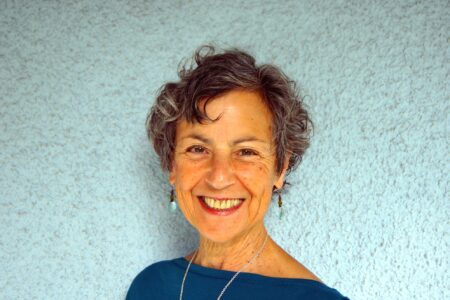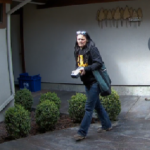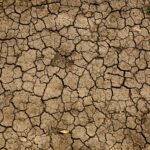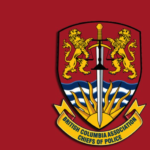Canada, Immigration and Multi-Culturalism: Part One (of Two)
“The West is the best. / Get here, and we’ll do the rest.”
— Jim Morrison, the Doors, Blue Bus
In the beginning, two words
I do not often fare into the waters of moral judgements, but in this column I do. My morals and ethics, or “values” as the modern vocabulary seems to prefer, are implicit in this column, rather than explicit. I write the words expecting readers will not require a tangential explanation for what I mean.
The other word I employ freely with expectations that the word is generally understood, is liberal. In many ways I am myself a liberal person, but it will be clear in this column, and from previous ones, that I am at odds with liberalism as it manifests itself in modern political and economic discourse.
How is the West ‘best’?
Over the years I have been writing this column, it has often been my practice to review world history and the story of how the world came to be in its present form, with Western power, culture, economic order, and political practices so clearly dominant in 2017. I am a Westerner in all ways, ethnic, historical, cultural, political, and economic, and I write for an audience similar to myself.
No matter that China has many distinctive features peculiar to itself and its historic culture, the two facts tell us it is Westernized in profoundly significant ways: One, that it is ruled by a single-Party state originated in European Marxian models, and two, that its economy is part of the West’s capitalist market order, inform one that China too is part of the Western global system.
No place on earth now escapes from the domineering influence of that small part of the globe whence Europeans set out overseas 500 years ago and where the Scientific Revolution and Western Enlightenment originated. First the Europeans used commerce and superior force to create colonial empires, but those empires have been “set free” since the decolonization wave 50 years ago. Today, it is Western technological and scientific power that has unified the global village. The interconnectedness of humanity is becoming technologically possible. The noosphere predicted by T. de Chardin is at hand.
Not only in the material sphere of original technology and economic productivity is it true that the West dominates. The United Nations, an institution where the affairs of all inhabitants of earth are discussed, and problems of war, famine, epidemic, and justice are debated, is a Western invention.
The United Nations Declaration of universal Human Rights contains many items that, historically, originated in Western nations. The rights and practice evolved first in the West, as part of political, social, and legal institutions there. Western notions of human rights have become universalized, and democracy is given lip service by all political actors.
A Western citizen of a wealthy nation-state, middle-class and well-educated, is the envy of tens of millions of people around the globe in less-fortunate lands: I receive this message daily in many ways through the many media I access. I am one of these envied people. I know why I am envied. I do not know why I and my peers are so fortunate. I am told frequently to feel gratitude for my good fortune and I do my best to feel it.
We in Canada live in a culture where law, order, and rights are well-established tradition. Other nations of Europe, the USA, and a few beyond this charmed circle, also enjoy Canadian levels of prosperity, affluence, and freedom. Quality of life, liberty of choice, material possessions: we have it all.
I see images daily to reinforce the message that the West is the best place to live for a person of my modest social status. I am not a member of any noble or aristocratic rank of society; I am not among the ten, or one, or 0.1 per cent of the population who are wealthy beyond imagining and powerful in consequence. Despite those disadvantages, which would have been clear marks of an underprivileged existence at any time before the twentieth century, I am not denied opportunity for good health, education, travel, and consumption of many good things and experiences. My human rights are enshrined in the Constitution of my home country, Canada. I can be fairly confident that I may exercise those rights and that I am secure in what they promise me.
It is pretty plain why the West is the best.
Immigration: a thumbnail Canadian history
Canada is a nation of immigrants. I hear this again and again. I surmise that a person of the aboriginal population of this land hears that sentence with a very different sentiment than I feel. I am steeped in the Story of Building Canada from the folklore of my people, people conveniently called by an acronym, WASPs. White, Anglo-Saxon, Protestant. [I would amend it for my own case, to be more specific: white, Anglican (by birth religion, a Protestant) Saxon, Celt (to honour my Irish and Welsh roots as well as my Saxon ones)]. To add to this list of privileged and entitled adjectives, I should add that I am male, heterosexual, and possessed of a post-graduate university degree.
The story of building Canada from a vast uncivilized nearly-empty land into the wonderful nation-state it is today, is the Story of the People I learned in my childhood deep in the bosom of WASP Ontario in the 1950’s and 60’s. In that historical context, one learned to celebrate the blessing of being part of the British Commonwealth. Britain was the Mother of Parliaments, the first industrialized society on earth, and the source of most of the Good Things a Canadian citizen enjoyed; Christianity in the 1950’s had not begun its rapid decline into irrelevance that would begin and intensify in the 1960’s. It was possible in 1962 to celebrate the heritage of Christendom, to think of Canada as a Christian nation, and to be thankful for the moral and ethical codes we had inherited from our religion.
Those were the last days of WASP dominance of this country. I am not expressing any nostalgia for that time nor regret that Canada evolved away from that past. But I do not apologize for it either. With everyone else of any ethnicity but mine celebrating their cultural heritage, I am not going to excuse my ancestors. Their crimes do not implicate me since I was not born then. Their cultural achievements are not mine either but I can feel as good about them as any person feels about the cultural legacies of their people.
It was not only WASPs who immigrated to Canada from the late-eighteenth century onward, from the time the British Empire conquered Canada from old France in 1763. The Empire was interested in maintaining its colonial land as a ground for settling the excess population of the British Isles and for increasing the commercial and investment opportunity of British capitalism.
Many immigrants came from non-English lands in the UK, the old Celtic regions of Scotland, Ireland, Wales and Cornwall. The WASP elite used its power to exercise prejudice against the Celts, excepting Protestant Scots who quickly became very elite indeed in British North America, after the American Revolution. The Celtic, mostly Irish, Catholics had to wait some time before being accepted into Canadian society as equals with the domineering minority who were WASP. Canada was first and foremost a WASP land of opportunity.
Other Protestant Europeans were among the colonists who came to settle land, Germans, Dutch, Scandinavians prominent among them and all suffering a certain disadvantage in the first generations until their children and grandchildren assimilated English language and cultural appearance. Canadian literature has some very fine examples of novels and poetry written by immigrants about their experience as strangers in a land of English norms. The stories told do not have uniformly happy endings or rags-to-riches success.
But the worst stories of all come from the aboriginal people. They were simply not seen as equal human beings. Obliterating them, turning them into rough copies of European Christians, was the aim of policy. They were wards of the state, perpetual children under the terms of the Indian Act; European science endorsed treating the natives this way, as racial inferiors. No concept of human rights would obstruct government actions aimed at the elimination of aboriginal culture before WWII, and even until the 1980’s. Native peoples had no civil rights to match those of European settlers; few Canadians objected.
Before 1900, Roman Catholic Europeans were not welcomed here, and the one province where Catholics were the large majority, Quebec, was not permitted a large influx of French co-religionists to buttress their numbers; they were consequently encouraged by their Church to have large families to compensate for the lack of Catholic immigrants. The lack of Francophone Catholic immigrants was a result of policy; English Canada did not want them, nor did France want them to come here. Only the Irish increased the Catholic population of Quebec, and they were not appreciated due to their language and their extreme poverty. Irish Famine ships brought disease and social burdens.
Canada never broadcast a public message to Europe, as America did, to send “huddled masses” of poor people here, the hungry hordes of working-class and peasant people eager to escape nineteenth-century European poverty. It is a matter of record, in well-kept immigration records, that many people who entered Canada from Europe did not stay, but moved on quickly or eventually to become Americans. The dynamism and promise of the American Dream was attractive. Britain did not encourage the anarchic but productive experiment in liberty and self-advancement, by enterprise and labour, seen in the USA.
The Dominion of Canada aggressively sought to populate its prairie West before WWI, and many East Europeans, both Catholic and Orthodox, and Doukhobor, came to settle the arable land of the West and make Canada a major wheat producer. By the deliberate policy of democratic governments under the Liberal P. M., Laurier, immigration increased Canada’s population and our agricultural and industrial outputs increased along with it. But the WASP elite still ruled.
Canadians controlled Canada’s immigration policy only since 1867; prior to that, the British Imperial government dictated policy.
Immigration: questions for Canada in the present
From the foregoing pocket history, one can see that immigration policy in Canada was not random, that a selection of “desirable” immigrants was always in the minds of the men who made policy. Keeping Canada British, and (mostly Protestant) Christian, was nothing to apologize for, back in the days of my childhood.
Today, I sit in front of a TV or computer screen and watch news of new immigrants to Canada; images and words on the subject have flooded me in media, setting me thinking on the subject of what Canada owes to the humanity seeking entrance to our so-fortunate land.
Since last winter, when the new regime in the USA generated fears among people in America that their temporary visas and undocumented status would soon mean a visit from immigration enforcement authorities, the new tide of refugee claimants and illegal entrants has been rising. CBC has done very good work on this story, bringing the topic before us with reports from the border of Quebec and Vermont. The image of a man in a hoodie, with hood up, dragging his suitcase into Canada while others are talking to the RCMP, was an image to provoke some ire. This man showed not the least concern that he was being too aggressive, pushing forward while others still talked, ignoring the police so far as the video showed. I felt annoyed. Why did this person assume he could act in such a way? Why did a police officer not move quickly to intercept him?
Our Prime Minister has created an image, false to me but apparently believed by many, that Canada will take anyone who can get here, will offer such improved conditions — that anyone who can leave the USA and the shadow of Trumpian hostility must naturally make the attempt to get here. An African man lost his hands to frostbite crossing into Manitoba last winter, believing he is unsafe in the US and knowing that back in his African homeland he will suffer because he is gay.
What is the trajectory we are facing in Canadian immigration practice and policy, if this year’s events are a harbinger?
Can Canada absorb two or three times as many immigrants as we have been taking per year? If we can, should we do it?
Should we simply keep on letting people walk in illegally, being arrested, and staying here for however long it takes (16 months average, as CBC reported it) to have their cases heard? And to be clear, I am speaking of people who want in because of our better life, superior in so many respects to the life of the lands they leave behind, that I am referring to. Not just proven refugees from manifest persecution who meet the criteria for asylum seekers.
Morally, if we “owe” this liberal, compassionate immigration policy to the world’s oppressed and suffering masses, if it is a human right for people to seek a better life here, we have no justification to stop the influx. That is a moral judgement. It’s the right thing to do.
If Canadians have a right to stop people from entering Canada — if it is our collective right to prevent them becoming Canadians, to control our population growth and plan our economic development by controlling immigration — then we should assert our right and let the world know we will enforce it.
It is the worst feature of unexamined liberal consciences, to be silent when a moral quandary presents itself and a hard truth must be uttered.
We cannot let in every person who wants to be Canadian. We will not. Let’s say it to the world, for the sake of transparent honesty about who we are and what we believe. Pretending we want everyone to enter who desires it, is rank hypocrisy. We do not want to let every needy person who wants in, in.
The world has millions upon millions of people who would come to live in Canada if the opportunity was presented. They have a human right to live as well as we do — the UN Declaration of Human Rights enshrines many of the rights Canadians enjoy. Therefore, because Canada is a land where those rights exist and people have a right to enjoy them, immigrants from all over the world who want our good life, will try to get into our country.
Is it the right of people to enter Canada when they ask? (presuming no clear reason against them, such as gross criminality). What right can Canadians set against the right of those people who would enter Canada if they could?
Is it Canada’s moral responsibility to actually send transportation to those people to facilitate their passage here, as we did indeed do for thousands of Syrians in 2015/16?
Multiculturalism: the Canadian ideal
Without going into thorough detail, I like my culture; that is the network of “artificial instincts” Yuval Harari calls the “intersubjective reality” I share with all others of this human collective phenomenon. Mine is English, Canadian, middle-class, and literate, and the culture of people who share a comparable education with me, a graduate of four different universities and a community college, with focus on history, social sciences, and journalism.
Canada is a multicultural country. That message has been an official agenda at least since the elder Trudeau was our prime minister, pursued by political and cultural means with notable success. The son of the first Trudeau, who now leads the country, celebrates our cultural and ethnic diversity in frequent public utterances. He is the same Trudeau who early this year seemed to tell the world that Canada would welcome arriving immigrants with open arms .
We experience frictions and conflicts along this path of multicultural Canadianism. In Quebec, a Charter of Values has brought questions of culture to the fore, even though the political party, the PQ, which articulated the manifesto, lost its hold on power before enshrining the Charter. Francophone Quebecois have been struggling with “reasonable accommodation” to allow peculiar and particular practices of immigrant cultures to exist in peace and with legal protection alongside something called “Quebec’s distinct society.”
Christian tradition in Quebec history has allowed a crucifix to be mounted on the walls of the National Assembly. But public-service workers are not allowed to wear a visible crucifix as personal jewelry or on clothing while on duty.
Hasidic Jews in Montreal have raised the ire of secular citizens by their attempt to make others conform to their standards; objecting to a window revealing women in yoga-class clothing, close to a synagogue, the male Hasidim of one neighborhood angered people not of their community. Other ultra-orthodox Jewish men have made headlines when they refused to sit next to a woman on an airplane. It is a complex and hazardous world, this multicultural society.
In the present moment, Canadians are challenged by the prospect of a Quebec law which will mandate refusal of public services to people who will not reveal their faces; this will practically mean Muslim women will feel the force of this law, since it is this cultural community which mandates female veiling. Quebec Muslim women vocally assert their right to be veiled as a religious freedom.
Here in the West Kootenay, the claim of religious freedom and rights is used to explain and justify the polygamous, male-chauvinist society in Bountiful. There, women “freely choose” to stay in the culture into which they are born, a peculiar variant of Mormonism. Other Canadians presume to question whether the women know what freedom is, when they stay in their community to marry a man chosen for them, a man who will marry more than one wife.
In general, the values of secular liberal humanism prevail in all Western nations today. Historical contexts generate regional particularisms, such as the very strong anti-clerical, laicizing current in France since its Revolution.
Liberal dogma declares that all cultures are equal, within a broad spectrum of protections against physical abuse (or barbaric practices) such as female genital mutilation, under a legal code of rights of life and liberty and self-identification. Liberals can get tangled in confusion, as for example when the right of a fetus to its life conflicts with the right of a woman to rule her body. Declaring that the fetus is not a life equal to the mother’s has been the liberal way out, and Canada has no federal law in place to forbid abortion up until the delivery of a baby.
A decade ago, Ontario seriously considered allowing Muslim Sharia law to be applied in civil matters where all parties concerned gave consent, but wisely rejected this proposed legislation. Sharia law was not harmonious with basic ideals of equality, but many “progressives” had supported the proposal in the name of fairness to other cultural traditions.
Prejudice, racism, sexism, hetero-sexism, hate-speech, are limitations on cultural freedoms, but within those parameters, the liberal credo asserts that all cultures can co-exist within an open society ruled by mass-democratic politics, statute law legislated by elected representatives, free-market capitalist economics, and the Canadian Charter of Rights and Freedoms.
End part one


























